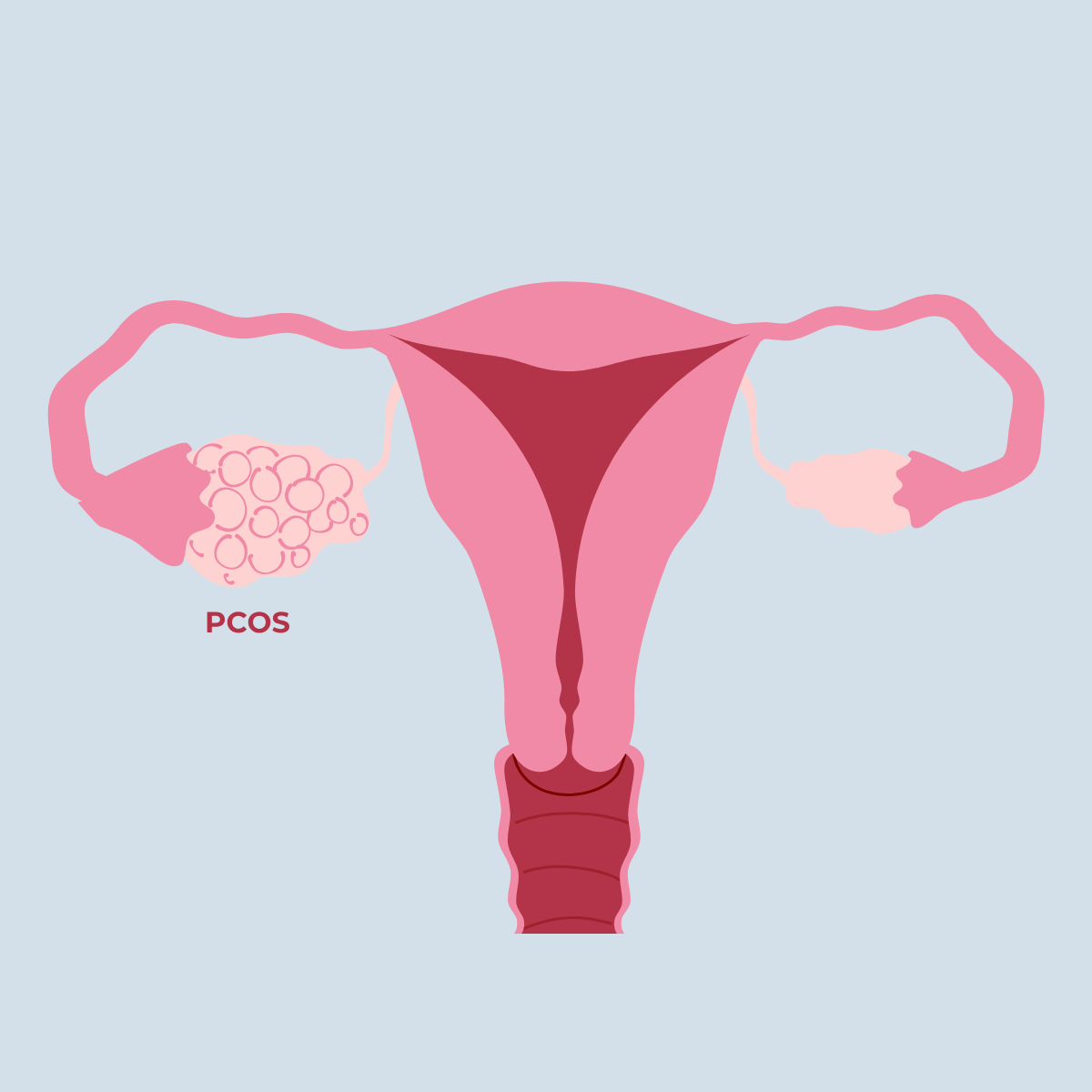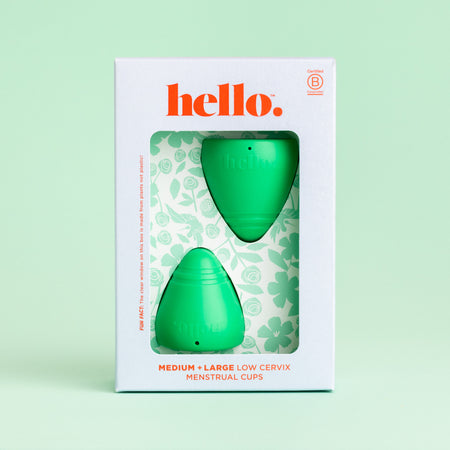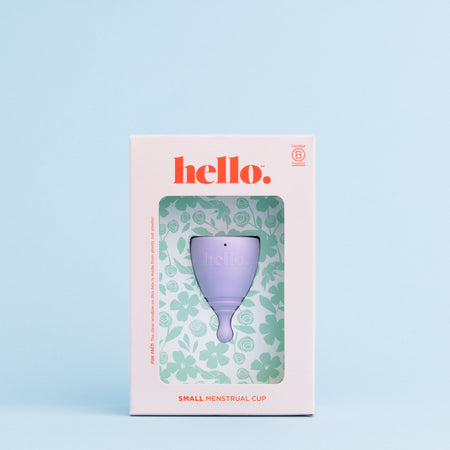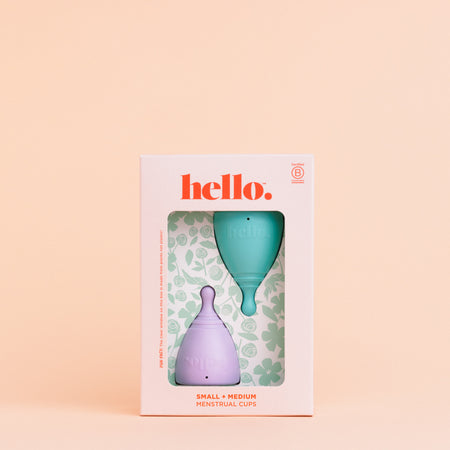If your period has ever felt unpredictable, painful, or downright confusing, you’re not alone.
Polycystic Ovary Syndrome (PCOS) is one of the most common hormonal conditions, affecting around 1 in 10 people with ovaries yet crazily enough, many of those people will have no idea they even have PCOS because it often goes undiagnosed.
In this blog, we’ll take a closer look at what PCOS really is, symptoms to look out for, and how it can be managed - so you can feel informed, supported, and empowered.
What is PCOS?
PCOS is a hormonal condition where the ovaries produce higher-than-normal levels of androgens (male-type hormones such as testosterone). This hormonal imbalance can interfere with ovulation, leading to irregular or absent periods. Despite the name, not everyone with PCOS has ovarian cysts - it’s really about how hormones behave.
Doctors often use something called the ‘Rotterdam Criteria’ to diagnose PCOS, which looks for at least two of the following:
-
Irregular or absent menstrual cycles
-
Signs of excess androgens (such as acne or excess hair growth)
-
Polycystic ovaries visible on an ultrasound
Symptoms of PCOS
PCOS can present differently from person to person but common symptoms include:
-
Irregular periods: cycles that are long, short, or missing altogether
-
Heavy bleeding: when your period does arrive, it may be unusually heavy
-
Acne & oily skin: especially along the jawline
-
Excess hair growth (hirsutism): on the face, chest, or back
-
Hair thinning: particularly at the crown or hairline
-
Weight gain or difficulty losing weight
-
Fertility struggles due to irregular ovulation
Many also experience mental health challenges - including anxiety and depression which are often overlooked but just as important.
Why Does PCOS Happen?
The exact cause of PCOS isn’t fully understood, but researchers believe a mix of factors contribute:
-
Genetics: PCOS often runs in families.
-
Insulin resistance: When the body struggles to process glucose properly, insulin levels rise, which can stimulate excess androgen production.
-
Inflammation: Low-grade inflammation is linked to higher androgen levels and other PCOS symptoms.
Long-Term Health Risks
PCOS isn’t just about periods, it can have long-term health effects if unmanaged including:
-
Type 2 diabetes and pre-diabetes
-
High blood pressure and cholesterol
-
Higher risk of endometrial cancer (due to fewer periods and irregular shedding of the uterine lining)
-
Sleep apnea and metabolic syndrome
That’s why early diagnosis and proactive management are so important. So if you have any of the symptoms we have mentioned, please discuss them with your doctor or gynaecologist.
How Can PCOS Be Managed?
There’s no one-size-fits-all answer but for most people PCOS can be managed with a mix of medical support and lifestyle strategies.
1. Medical Options
-
Hormonal birth control: helps regulate cycles, reduce acne, and control excess hair growth.
-
Metformin: a diabetes medication that can improve insulin sensitivity and help restore regular ovulation.
-
Fertility treatments: such as Clomid or IVF for those trying to conceive.
2. Lifestyle Changes
-
Exercise: Regular movement improves insulin sensitivity and supports hormone balance.
-
Balanced nutrition: Eating more fiber, lean proteins, and healthy fats while limiting ultra-processed foods may help reduce insulin resistance.
-
Stress management: High stress levels can worsen hormone imbalances. Mind-body practices like yoga, meditation, or journaling might help.
3. Supplements
-
Inositol: particularly myo-inositol, has been shown to improve ovulation and hormonal balance in people with PCOS.
-
Magnesium: supports blood sugar control and can help reduce PMS-like symptoms.
-
Vitamin D: deficiencies are common in PCOS, and supplementation may support hormone and metabolic health.
Period Care & Comfort
Managing heavy, irregular bleeding can be exhausting. Choosing reliable, comfortable, and sustainable period products can make a real difference. Hello Period offers a range of reusable options which hold more than single-use tampons and sanitary pads. Options like the Hello Cup, Hello Disc, Hello Pads, or Hello Undies are designed to handle heavier flows, reduce irritation, and last for years instead of hours so you feel supported without adding to landfill waste.
Living with PCOS
Many people find that openly discussing their PCOS so those around them are aware of what it is can be helpful. Also connecting with PCOS communities online can offer not only support but also tips and tricks for PCOS management.
PCOS is common, complex, and often misunderstood. But understanding the symptoms, causes, and management options is the first step toward feeling more in control. With the right mix of medical help, lifestyle changes, and supportive period care, we hope you can navigate PCOS with confidence.
References
-
Centers for Disease Control and Prevention (CDC). “Polycystic Ovary Syndrome (PCOS).” cdc.gov
-
National Health Service (NHS). “Polycystic Ovary Syndrome (PCOS).” nhs.uk
-
Rotterdam ESHRE/ASRM-Sponsored PCOS Consensus Workshop Group. “Revised 2003 consensus on diagnostic criteria and long-term health risks related to PCOS.” Fertility and Sterility (2004).
-
Legro RS, Arslanian SA, Ehrmann DA, et al. “Diagnosis and Treatment of Polycystic Ovary Syndrome: An Endocrine Society Clinical Practice Guideline.” The Journal of Clinical Endocrinology & Metabolism (2013).
-
American College of Obstetricians and Gynecologists (ACOG). “Polycystic Ovary Syndrome (PCOS).” acog.org















